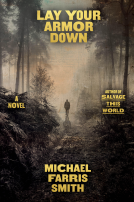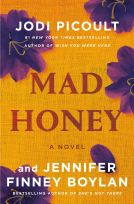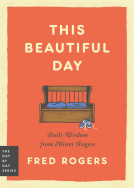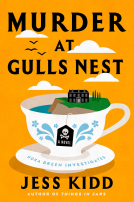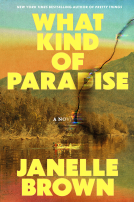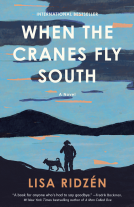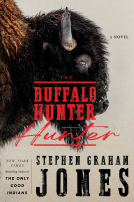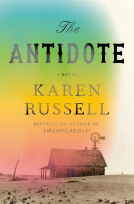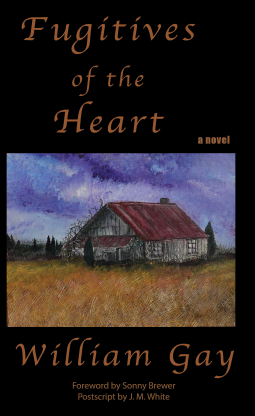
Fugitives of the Heart
by William Gay
This title was previously available on NetGalley and is now archived.
Send NetGalley books directly to your Kindle or Kindle app
1
To read on a Kindle or Kindle app, please add kindle@netgalley.com as an approved email address to receive files in your Amazon account. Click here for step-by-step instructions.
2
Also find your Kindle email address within your Amazon account, and enter it here.
Pub Date Jun 30 2021 | Archive Date Jul 06 2021
Talking about this book? Use #FugitivesoftheHeart #NetGalley. More hashtag tips!
Description
In this, William Gay’s last posthumous novel, we have his homage to Twain’s Huckleberry Finn. Marion Yates, a teenage orphan, is befriended by Black Crowe. Yates in turn nurses Crowe through a work explosion and the two form a seemingly lasting friendship. First love, racism, and betrayal—these are all topped with Gay’s signature wry humor in his signature Tennessee fictional setting of the Hurrikan. Gay again proves himself a master of prose.
A Note From the Publisher
This posthumous novel by the wondrous William Gay came about through the dogged forensic work of Michael White and his team of editors.
Advance Praise
“The late William Gay’s channeling of Twain’s Huck Finn (with a dash of Wright’s “Underground”) is a haunting, postwar mountain song in a minor key, about a boy’s coming of age among those folks who populate the margins of society—prostitutes, moonshiners, kingpins of the hollers, low life ne’er-do-wells, and counterfeit Christians. The strains of sweetness in the melody include the broken promise of a forbidden flirtation and the tale of a heartbreaking friendship, bound to be rent by life’s harsh depravity. Fugitives of the Heart is a darkly exquisite take on a classic theme.”
—Suzanne Hudson, In a Temple of Trees, Opposable Thumbs
Marketing Plan
Ads in Rain Taxi, Poets & Writers, book signing by Sonny Brewer and J Michael White
Ads in Rain Taxi, Poets & Writers, book signing by Sonny Brewer and J Michael White
Available Editions
| EDITION | Hardcover |
| ISBN | 9781604892734 |
| PRICE | $28.95 (USD) |
Featured Reviews
 Karen K, Reviewer
Karen K, Reviewer
I received this from Netgalley.com.
"Marion Yates, a teenage orphan, is befriended by Black Crowe and the two form a seemingly lasting friendship. " This book was written after Gay's death using his written ideas and notes. 'She was still asleep. It was very hot in the house and the air stale with doom as if death napped on the cot across the room.'
I haven't read this author before and I enjoyed the story. While I liked the almost ethereal (adjective: light, airy, or tenuous: an ethereal world created through the poetic imagination.) quality to the writing, this story did seem pieced together and I struggled with the overall flow and general continuity of the story.
3.75☆
This is an interesting novel. The writing is atmospheric and the characters well drawn. Yates is a teenage boy, witnesses his fathers death and his mother is sick. Set in the late 40s in Tennessee, Yates befriends a black man, Crowe and looks after him after a mining accident. Darkly humorous and unusual.
I had never heard of William Gay, and after this read, I will certainly look up his other works. All of the comparisons to Faulkner and McCarthy and the recognition of Fugitives of the Heart as an homage to Huckleberry Finn have been well covered. The prose is descriptive and poetic, interspersed with episodes of dark humor and “a few stretchers,” as Gay described them.
Fugitives is the last of the posthumous novels to be published. Its life before publication and its discovery are covered in the Foreward by Sonny Brewer. A Postscript by J.M. White gives a critical analysis of the work’s place in Gay’s canon. One wonders if the book was complete in Gay’s view, or if it was still in process. There seems to be an abrupt shift into the climactic episode. Whether this was intended to stand as it is or some transitioning would have been added could be debated.
Overall, I am pleased with my introduction to William Gay’s work and have a bit of regret that I did not encounter it earlier, perhaps while he was still alive and writing. Thank you to the editorial team, Livingston Press, and NetGalley for an Advance Reader Copy in exchange for an honest review.
Thanks to Netgalley for the ARC of this book. I really enjoyed this one and read it in one day. Look forward to much more by this author.
 Cheri S, Reviewer
Cheri S, Reviewer
In the foreword by Sonny Brewer, he mentions a piece that William Gay wrote, published in his "Don’t Quit Your Day Job" published by Brewer, his thoughts on becoming a writer:
’I had no words for the way the snow looked drifting down in the streetlights and I wanted those words. If they were anywhere I would find them.’
This is the second book by Gay that I’ve read, the first being The Lost Country which was published in July, 2018, six years after his death. His writing, to me, has an essence of Cormac McCarthy’s darker settings and stories, with the writing of Wendell Berry, the almost reverential observations of nature and settings. The essence of the love of these small towns set in the middle of nowhere, inhabited by those struggling with life in these hollers, and the ne’er-do-wells that seem either drawn there, or stuck there, as well as those who take advantage of their circumstances.
This is a relatively short read, but I wanted to savor it, reading and re-reading passages, just letting them soak in. So many that were beautiful in their simplicity and their appreciation of all that is found in our physical world, or his descriptions of these impoverished, troubled and troublesome members of this community in Tennessee.
Both a coming-of-age tale of a young orphan, Marion Yates, and the trial of finding one’s way in this world, there’s a subtle humour in this story. Gay’s depictions of these people that inhabit these places, their mishaps and their faults, are imbued with a gentle humour, but there is also a sense of gratitude and love, as though this were written as an ode to the love he’d found in these places, himself.
With themes of love and friendship, along with adversity, corruption, and poverty, Fugitives of the Heart also shares a sense of reverence for this one chance we are given to appreciate and embrace this adventure we call life.
Pub Date: 30 Jun 2021
Many thanks for the ARC provided by Livingston Press at the University of West Alabama
 Eric E, Reviewer
Eric E, Reviewer
Fugitives of the Heart is the last posthumous novel of William Gay. Gay, who passed away in 2012, remarkably did not have his writing published until well into his fifties, and is one to seek out.
The works of William Gay are best enjoyed when slowly mulled over and allowed to unfold at their own pace, like a closed morning flower opening its petals to the light of day. The more time allowed for his words and sentences to bloom, the more nuances and pleasures his writing will reveal.
Often, in his paragraphs and even in his longer sentences, the meaning of the entire passage may not be fully realized until coming to the last words. While to some this may seem troublesome, once a reader unlocks the mystery to the cadence of Gay’s writing—which does not take too long and may require just a small amount of patience—his descriptive powers and storytelling methods become clear, with readers soon being richly rewarded with the created imagery of his prose.
Fugitives of the Heart, an homage to Mark Twain’s Huckleberry Finn, is a coming-of-age tale of fifteen-year-old Marion Yates in rural, poverty-stricken Tennessee. In the novel, Gay depicts the growth and travels of Yates as he navigates through the complexities of the world filled with those that put more stock in the rearing and pedigree of people, rather than character and possibilities.
The novel opens with Yates as a small child who quickly learns of the need to rely mostly upon himself after witnessing the brutal aftermath of his father brought home after being caught poaching from a nearby farmer.
From then on, Yates roams the area learning the best he can from his own experiences and others in the area during the 1940s. Along the way, he develops a friendship with a black man named Crowe. Crowe, with a mysterious background of his own, seems unencumbered by the racial opinions of those around him and takes an interest in the young, but wiser than his age, Yates. Soon, as their relationship develops and with his own dangerous background slowly revealed, Crowe becomes a mentor to the Yates teen.
As the novel unfolds, Yates finds himself drawn to the woods and tends to spend much more time away from his home than residing with his some-time prostitute mother, all the while continuing his friendship with Crowe. His interest in the opposite gender also starts to emerge, only to seemingly create further problems for the teen. Yates continues to scratch out a life in search of meaning and purpose, especially as he finds too often people, even those you trust, are capable of betrayal and harm.
The writing in Fugitives of the Heart as with Gay’s other offerings, and like so many other Southern writers, is wonderfully descriptive and often so in diminutive locution. With his blending of words, Gay is so capable of describing everyday occurrences, such as voices along the riverbank, in such creative and unique ways, allowing the reader to think of such events in ways never before thought of.
Fugitives of the Heart is highly recommended to those fond of Southern writers and Southern noir.
This book was provided by NetGalley with the promise of a fair review.
This review was originally published at MysteryandSuspense.com
 Cathy J, Librarian
Cathy J, Librarian
Fugitives of the Heart by the late William Gay is like all of his previous works; they are never long enough. Few authors have the ability that he had of wringing so much emotion out of such desolate circumstances and characters, and have the reader hope against hope for a positive outcome. I am reminded of Harry Crews’ Autobiography of a Place, written about Crews’ home county in Georgia, where poverty and despair were rarely overcome, and even when it was, its effect was indelible throughout life. Gay wrote for thirty years before becoming a published author and most of his works were done so posthumously. He writes of longing; for understanding, for mercy in a very unforgiving world. Fugitives is his homage to two of his favorite writers, Mark Twain and Cormac McCarthy, and Gay is worthy of their company; a very good read.
Readers who liked this book also liked:
Jodi Picoult; Jennifer Finney Boylan
General Fiction (Adult), Literary Fiction, Women's Fiction
Patti Callahan Henry
General Fiction (Adult), Historical Fiction, Women's Fiction

